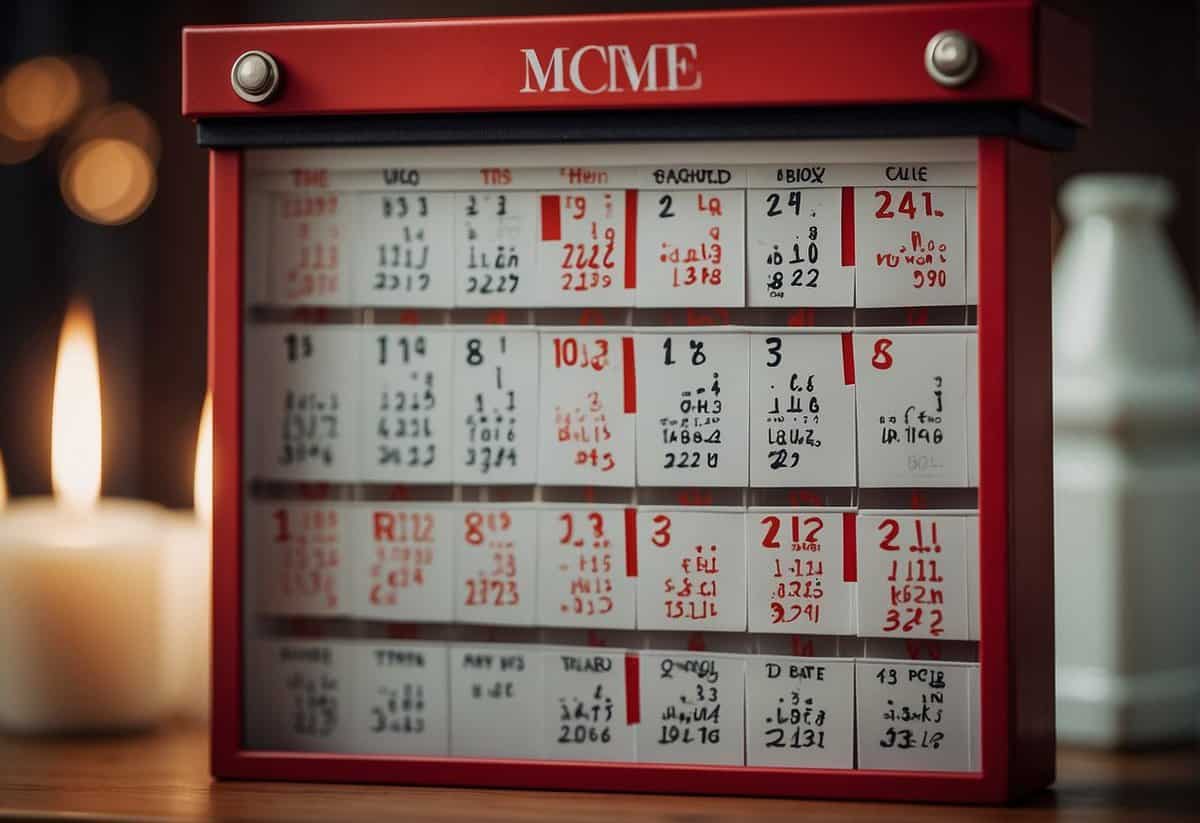How Long Does It Take to Pay Off a Wedding? Understanding Financial Planning for Newlyweds
When planning for your special day, one of the most significant concerns you may have is the financial aspect of it all. Determining how long it will take to pay off a wedding depends greatly on your approach to budgeting and your chosen payment method. If you decide to save up beforehand, the length of time needed can range from a few months to several years, depending on how much you can set aside each month. Alternatively, relying on loans or credit to fund your wedding will introduce different variables such as interest rates and loan terms, which affect the payoff timeline.

It’s essential to understand that the cost of a wedding can vary widely. A clear wedding budget helps manage expectations and gives you a target to work towards. Once you have a figure in mind, personal financial planning can help you strategize how to accumulate the necessary funds or how to manage repayment post-wedding. Whether you’re cutting costs or finding creative ways to save money, a well-thought-out plan is integral to becoming debt-free after your wedding bells have rung.
Key Takeaways
- Assessing your financial readiness is crucial for determining a realistic timeline to pay off your wedding.
- A detailed wedding budget forms the backbone of effective financial planning for your big day.
- Adopting debt management strategies can aid in tackling wedding-related expenses without long-term financial repercussions.
Understanding Wedding Expenses

When planning for your special day, it’s essential to have a comprehensive understanding of wedding expenses to avoid unnecessary debt and ensure you can celebrate without financial worry.
Breaking Down Wedding Costs
To effectively plan for your wedding, you need to break down the costs. Typically, the largest expenses include the venue and catering, which can take up almost half of your budget. Don’t forget to include attire, such as dresses and suits, which generally account for about 7% of total costs. Additional elements like photography, entertainment, and decorations also contribute to the overall financial picture.
- Venue: Often the most significant expense.
- Catering: Can vary greatly based on menu and guest count.
- Attire: Includes the wedding dress, suit, and accessories.
The Role of Budgeting
A detailed and realistic wedding budget is crucial. Begin by determining your total budget and then allocate a percentage to each aspect of your wedding. During this phase, consider:
- Priority Items: Allocate more funds to aspects most important to you and your partner.
- Savings: Assess your savings accounts and determine how much you can contribute without jeopardizing your financial stability.
- Cash Gifts: Factor in any cash gifts from family members, but don’t rely on them for essential costs.
Options for Funding the Wedding
The average cost of a wedding can be daunting, generally totaling around $33,000, with variations based on personal choices and geographic location. To fund the wedding, couples often combine savings, cash gifts, and credit cards. Some opt for a personal or wedding loan, which can spread the expense over a more extended period. Before taking any loans, it’s essential to have a payoff plan in place and consider the potential impact on your financial future.
Debt Management Strategies

Effectively managing your wedding debt requires an understanding of different debt management strategies available to you. From grasping how interest rates affect your repayments to considering consolidation options, the right strategy can help you clear your debt more efficiently while potentially preserving your credit score.
Understanding Interest Rates and APR
Interest rates and the Annual Percentage Rate (APR) are critical in determining how much you’ll end up paying back over the life of a loan. For example, a fixed interest rate means your monthly payments remain the same, making budgeting easier. On the other hand, a 0% APR credit card could offer relief through a promotional period, but it’s vital to pay off the debt before this expires to avoid higher interest rates later.
Analyzing Debt Payoff Methods
There are two popular debt payoff strategies: the debt avalanche and the debt snowball. The debt avalanche method prioritizes paying off debts with the highest interest rates first, potentially saving you money on interest in the long run. Alternatively, the debt snowball method focuses on repaying the smallest loan amounts first, which may motivate you through small victories. Both require reviewing your budget to ensure you can meet the minimum payments on all other debts simultaneously.
Considering Debt Consolidation
Debt consolidation involves combining multiple debts into a single consolidation loan or a balance transfer credit card, often at a lower interest rate. This strategy can simplify your monthly payments and potentially reduce the amount of interest you pay. However, always compare the terms, such as the balance transfer fees or the new loan’s interest rates, and ensure they align with your financial goals and ability to pay off the debt.
Implementing these debt management strategies should be adapted to your personal financial situation, taking into account your savings, ongoing budget, and the impact on your credit score. Always approach debt payoff with a clear plan and a realistic timeframe, and remember to celebrate the milestones as you make progress toward becoming debt-free.
Personal Financial Planning

When tackling how long it takes to pay off a wedding, creating a robust financial plan is crucial. You’ll need to consider your savings, credit score, and budget to effectively manage your wedding budget and financial goals.
Importance of a Financial Plan
Establishing a financial plan is the foundation for paying for a wedding. Your plan should factor in your current savings, projected expenses, and your long-term financial goals, such as a retirement account. Having a plan helps you understand where you stand and what steps you need to take, like maybe opening a joint savings account or considering tax refunds as potential wedding funds.
Balancing Wedding Goals with Financial Reality
It’s necessary to align your dream wedding with the reality of your finances. Draft a detailed wedding budget and compare it against your savings account and monthly income. To avoid compromising your financial future, you may need to cut expenses or find ways to increase income, such as taking on a DIY project for the wedding, instead of over-relying on early withdrawal penalties from your investment accounts.
Seeking Guidance from Financial Advisors
If crafting a financial plan seems overwhelming, seeking assistance from a financial advisor could be a smart move. They can guide you on how to balance your savings and expenses, how to safeguard your credit score while planning for a large expense, and strategies to avoid depleting your retirement account. A frank conversation with an advisor may reveal actionable steps to take like setting up a special savings account specifically for wedding expenses that could smooth out your path towards a financially secure marriage.
Frequently Asked Questions

Navigating the financial aspects of wedding planning can be challenging, but being informed about the various approaches and timelines can help you manage your wedding debt effectively and plan your special day without financial strain.
What are some strategies for paying off wedding debt?
To pay off wedding debt, consider strategies like creating a detailed budget, prioritizing expenses, and cutting down on non-essential items. Extra income, such as bonuses or tax refunds, can also be allocated toward reducing your debt faster.
On average, how much time do couples take to save for a wedding?
Couples typically save for their wedding over a period of 12 to 18 months, allowing them to allocate a manageable portion of their income monthly to cover the costs.
What options do couples have for financing their wedding?
Couples can finance their wedding through savings, personal loans, credit cards, or even a dedicated wedding loan. Some also rely on financial gifts from family members to help cover expenses.
What is a common payment schedule for wedding expenses?
A common payment schedule for wedding expenses includes initial deposits, interim payments for services as the planning progresses, and final payments due on or near the wedding date. It’s essential to negotiate payment terms with vendors beforehand.
How can I plan a wedding with a limited budget?
You can plan a wedding on a limited budget by prioritizing crucial elements, choosing more affordable alternatives, and keeping the guest list to close friends and family. DIY projects and off-peak season dates can also help in reducing costs.
What amount of savings should be in place before planning a wedding?
Before planning a wedding, aim to have savings that cover at least 50% of your estimated budget to ensure you have a financial cushion. This approach minimizes the need for debt and gives you more flexibility in your wedding planning.


